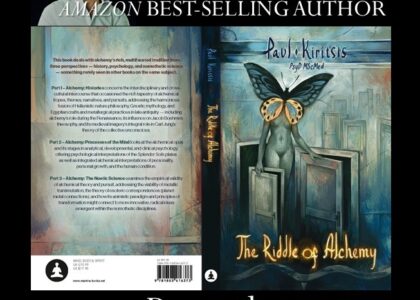
If the axiom “we choose our parents” is
to be believed, the decisions I made before my conception are to be commended.
It just so happens that both my caregivers were industrious, level-headed, and
deeply compassionate individuals with uncompromising morals. I gladly declare
that there was contingent communication at the Kiritsis residence and that there
was never I time when I wasn’t perceived, made sense of, and responded to in a
pertinent manner. I was inquisitive, if not overtly inquisitive with my
perambulations in unfamiliar environments, but would swiftly become upset and
resort to proximity-seeking behaviors if my caregivers disappeared from sight
and remained hidden. Foremost of these episodic autobiographical memories is
the unremitting yelling and whimpering that went on during first days at Keon
Park kindergarten when I was separated from my interpersonal blanket of
security and trust, my paternal grandmother; being yanked from my parents’
grasp within a bustling shopping center and then overrun, possessed, and seized
by an alternating dyad of trepidation and fear as a consequence; becoming
apprehensive and despondent each Sunday morning when my father left the house
for football practice; and seeking solace inside the interlocking arms of my
mother when my premeditated actions were not approved of or appreciated. Judging
from these emotional and behavioural reactions, one might profess that I was a
securely attached child–and a slightly spoiled one at that!
In
the Cultural Nature of Human Development,
Barbara Rogoff asserts that cultural approaches to child-rearing and care in
addition to the particular dynamic buttressing family relations exemplify
generational patterns and strategies. From this perspective the inheritance of
parental views and values about romantic relationships and finances, for
instance, may be incompatible with one’s personal needs because the former
crystallized under socio-political forces and circumstances which are no longer
existent. Immigrating to urban Australia from an underprivileged, provincial
area of Greece proper in the 70s to create a better life for themselves, my
parents have always emphasized the importance of accumulating tangible assets along
with their prejudiced idea of appropriate, respectable occupations through
which such aspirations might be realized.
Their rustic inheritance and communal
leanings have permitted multimodal approaches (i.e. herbal remedies and
elixirs) to health and healing and fidelity to extended family, qualities
inherited by both my brother and I (This also explains my obsession with
spagyrics and alchemy). It’s no coincidence that caregiving, instructional, and
disciplinary duties associated with my own wellbeing have intermittently been
the responsibility of my grandparents, aunts, and uncles. In sharp
contradistinction to middle-class Australian families of northern European
descent, the traditional Greek ethos demands that children remain accountable and
involved with their family of origin irrespective of their age, marital status,
and location. Inaugurated before the renowned traditions of the Ottoman Turks,
Byzantium, and the Roman Empire ever came to Greece, this core belief continues
to be passed down from generation to generation like a golden thread, or better
still an Olympian flame.
Moreover,
the Greek migrants who disembarked on Australian soil in the 60s and 70s brought
with them the hierarchies and constraints of pastoral Greece, including a
predilection for romantic relationships founded on the qualities of fidelity,
mutuality, and monogamy. While married partners may have embodied differential
roles, interests, and characterological traits in the context of the cohesive
family unit, they labored unanimously to generate an empathic nest full of
material abundance, replete with physical and emotional security. Curtailing
individualistic and competitive qualities, the traditional Greek ethos tacitly
prioritizes parental responsibilities towards children and active participation
in their lives over personal freedom, inner transformation, and independence.
For those who choose to have them, children will always come first. Traces of
these primordial family virtues have been implicitly present in my romantic and
fraternal attachments since early childhood; I cannot recall any past interpersonal
relation in which I didn’t freely and willingly fulfil said expectations and
desires or offer physical, emotional, and financial support. To give in a selfless
and unrequited manner without expectations and to consecrate in honor of
another is something I learned from my extended family.
“Our mission in life is service,” my
grandmother would always tell me.
It astounds me when I contemplate how comparable
my own philosophies are.








